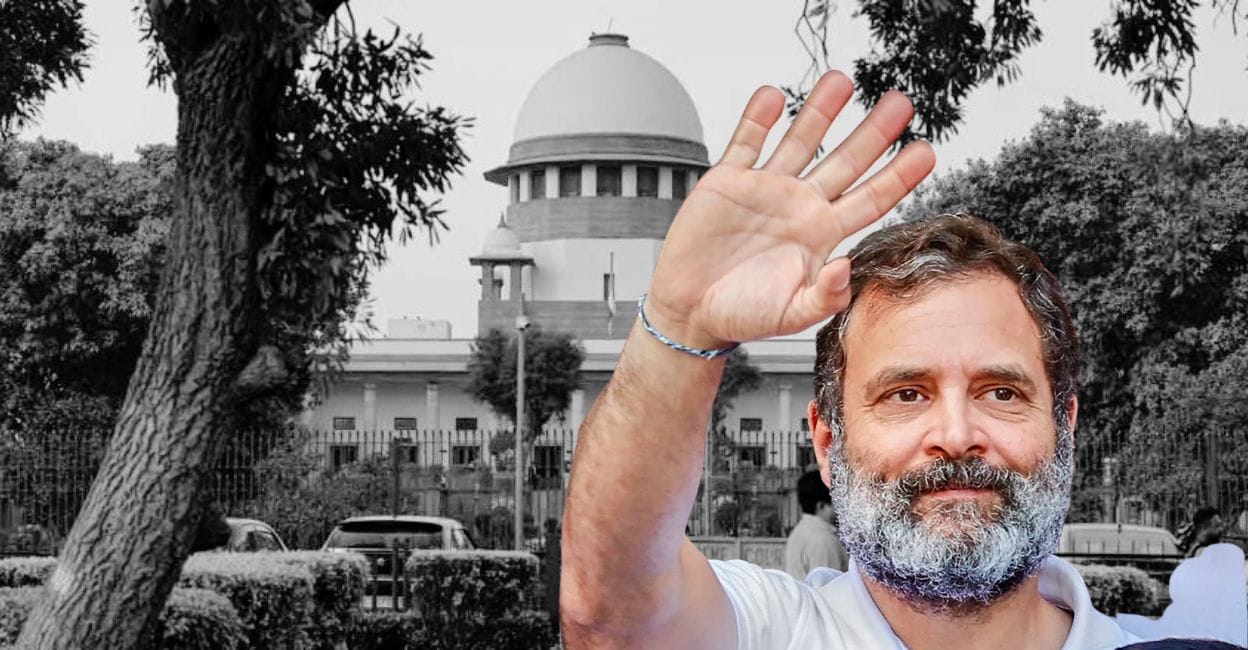It has become a dangerous national pastime for Opposition leaders in India to hurl wild, unsubstantiated accusations at constitutional institutions—especially the Indian Army—under the pretext of exercising “freedom of speech.” The latest offender, unsurprisingly, is Congress leader Rahul Gandhi. The Supreme Court on Monday stayed criminal defamation proceedings against him for stating that the Indian Army was “thrashed” by the Chinese Army in Arunachal Pradesh during a 2022 clash. But what must not be stayed is a national debate on the rot in political accountability that makes such lies possible, indeed, fashionable. Gandhi did not make this statement in the Parliament, where he is expected to debate constructively as the Leader of the Opposition. He made it from a public platform during his Bharat Jodo Yatra and repeated the insinuation via social media, deliberately triggering distrust in the Armed Forces among ordinary citizens. It wasn’t just loose talk—it was a calculated political maneuver to undermine national morale. The Supreme Court rightly grilled Gandhi’s counsel, senior advocate Dr. Abhishek Manu Singhvi, on the veracity of such claims. “Were you there? Do you have any credible material?” asked Justice Dipankar Datta. “If you were a true Indian, you would not say all this.” That statement strikes at the heart of the issue. What kind of Indian leader, one who claims to walk for unity, publicly amplifies enemy propaganda at a time when the nation is battling hostile neighbors on both fronts? This isn’t an isolated incident. Rahul Gandhi has a history of manufacturing narratives designed to sow division and suspicion. From accusing the Prime Minister of “treason” over the Rafale deal (a claim debunked by the Supreme Court) to mocking the Army as “Modi’s Sena,” Gandhi’s record is a testament to how far political discourse has decayed.

More disturbing is how such leaders weaponize Article 19(1)(a)—the right to freedom of speech—while conveniently ignoring Article 19(2), which allows for reasonable restrictions to safeguard national security and public order. The Allahabad High Court had earlier dismissed Gandhi’s plea on these very grounds, stating unambiguously that freedom of expression does not mean freedom to defame the Indian Army. Yet, undeterred, Gandhi ran to the Supreme Court crying victimhood, as always. What Singhvi and his ilk refuse to acknowledge is that with great political position comes greater responsibility. One cannot spread falsehoods and later hide behind legal technicalities or journalistic reports. If a former Army officer did indeed tell Gandhi about Chinese incursions, Gandhi must raise it in Parliament, backed by official documentation, not blurt it out at a political rally for applause. Sadly, Gandhi is not alone in this destructive trend. Delhi Chief Minister Arvind Kejriwal once claimed that the Indian Army staged the 2016 surgical strikes, demanding “proof.” Tamil Nadu Minister Udhayanidhi Stalin compared Sanatana Dharma to dengue and malaria. West Bengal’s Mamata Banerjee has accused central agencies of being BJP puppets every time they uncover corruption in her government. And each time the Election Commission rules against them, they scream “dictatorship.” This relentless vilification of institutions has created a credibility crisis in Indian democracy. If left unchecked, it will corrode public trust in the very foundations of our republic—our judiciary, military, election bodies, and law enforcement. There is an urgent need to revisit defamation laws and include harsher penalties for public representatives who knowingly spread falsehoods that damage national interest. A cooling-off period—say, a three-year bar from contesting elections—must be considered for repeat offenders who defame the Army or constitutional institutions. Perhaps then, politicians will think twice before converting free speech into free slander. Democracy does not mean absolute freedom. It means responsible freedom. And if Rahul Gandhi and his cohorts can’t tell the difference, then it’s time the law taught them the hard way.





